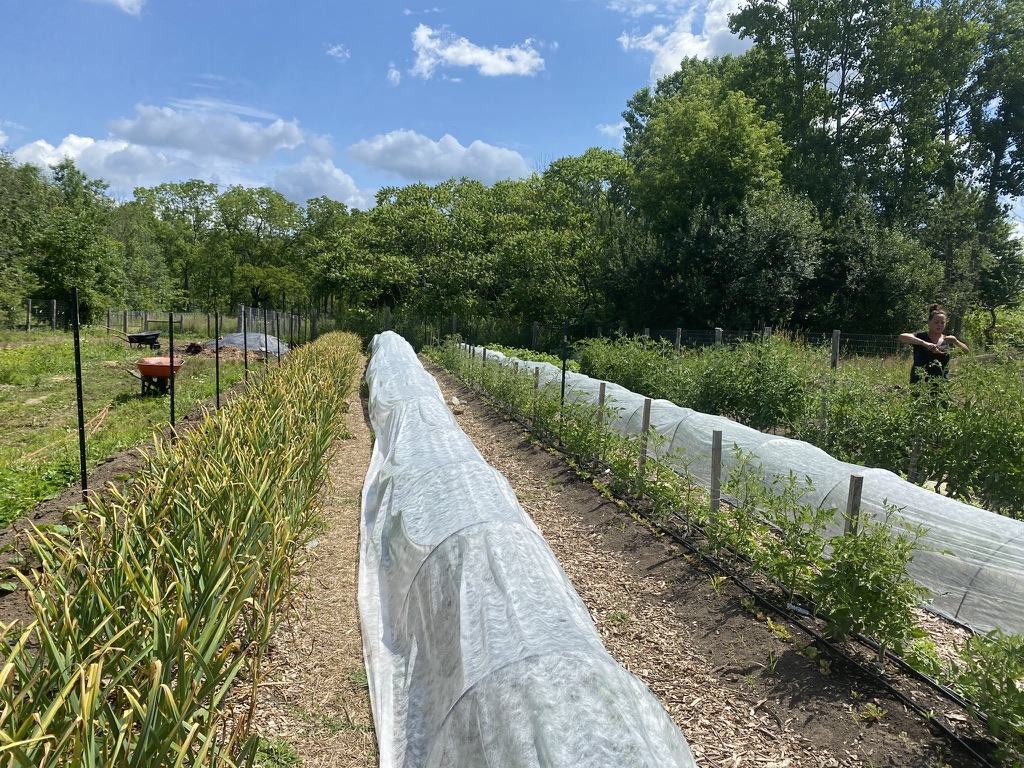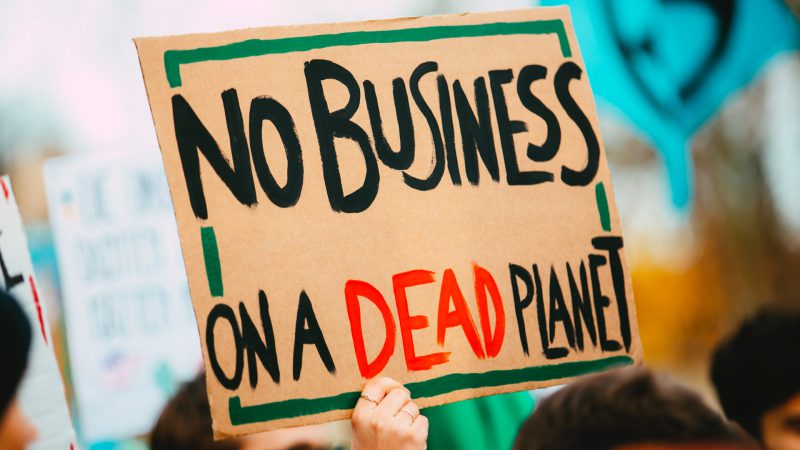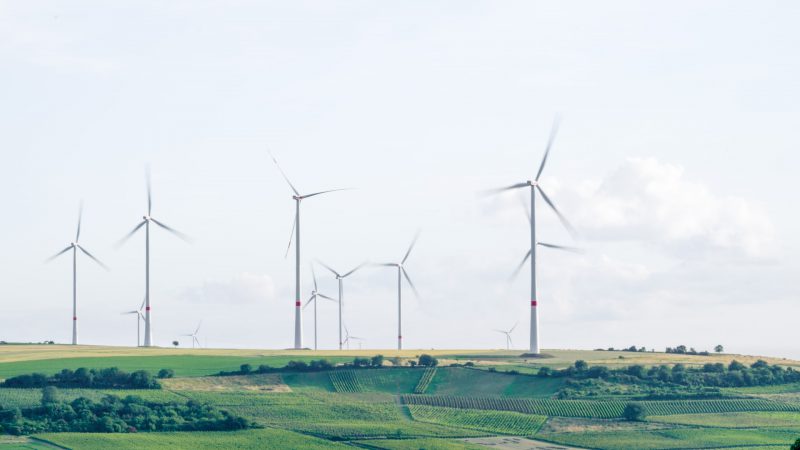Red Dog Organic Farm
Demonstration Project: Organic, Regenerative, Permaculture, and Sustainable Initiatives

The Real Economic Society’s demonstration farm is an experimental agricultural operation where we seek to imbue the landscape with natural diversity by minimizing the impact of our agricultural production. We achieve this by ranking output below special diversity and health of the overall ecological setting.
We are constrained by the limitations of our property border, which abuts with a 60 acre parcel that is farmed using industrial mono-cropping methods such as heavy mechanical tillage, multiple aerosol treatments of various chemical pesticides, chemical fertilization and single crop production; essentially a soil micro-biome dessert.
On the other border we have a nursery tree farmer with an unfortunate affinity for Roundup, which, as is in constant use by both neighbours, represents our biggest ecological threat.
We have excavated deep ditches down the length of either side of the property to divert the runoff from these neighbours into the Grand River, which is contaminated cess-pool where cows just upstream stand in the river defecating, and the RV resorts lining the river routinely dump untreated sewage directly into the river.
Despite these contamination sources on our borders, our soil tests reveal zero contamination from any of those sources, and so we also experience such a robust diversity of species that its more of a wildlife preserve than a farm.
Nonetheless, our vegetable, fruit and herb production are outstanding, even though we have to live with a continuous exploitation of our agricultural handiwork by the very flora and fauna we prioritize.
We are seeking to prove a macro-theory that the presence of one organic, regenerative ecological farm has an outward-radiating rehabilitative influence, as increased populations of species nurtured by our property’s natural abundance fosters recovering populations of species destroyed or displaced by the scorched-earth approach of our neighbours.
After the population peaks and the convergence of ecological failures drives human population sharply lower in the next century, it is our conviction that the future of humanity lies in the Real Economic approach to everything.
Farming Organically is the Noblest Profession
The opportunity inherent in operating an organic regenerative and permaculture-oriented farm in the context of economics and ecology is priceless. A truly sustainable food production farm incorporates the diversity of nature with the absence of synthetic, engineered genetics and chemical inputs.
A farm is the embodiment of economics; a microcosm of economic productivity that recognizes the fundamental nature of the ecological primacy of the economic possibility, and seeks to align its husbandry with that priority foremost.
But rather than view the land as an asset to be exploited as is the current economic default, we regard the land as part of the skin of the living organism called Earth, a biological space ship upon which we all hurtle through the heavens together on at unfathomable speeds, twirling endlessly throughout time and space.
If we fail to recognize this reality, and realign our behaviours towards its rehabilitation and ecological diversity, then we will become just another barren dustball, careening along with faint traces of the promise of what was once the human race.
The Real Economic Society established a 28 acre farm on the Grand River in Haldimand County with two objectives: 1) The Society needed a physical headquarters to conduct research and continue its advocacy for Real Economics, and 2) there is no more perfect an example of an economy than a farm.
Core to the philosophy governing Real Economics and the Real Economic Model is the fundamental commitment to the stewardship of the Earth’s ecology. Thus, the farm is strictly organic, regenerative, and biodynamic.
But more than that, we seek to eliminate plastics from the value chain of food from seedling to table. And that is not an easy thing to accomplish.
Plastics – which are very much a derivative product of the petroleum industry – have become the default packaging material, default labelling material, and default construction material of hydroponic and aeroponic systems.
The pots we plant seedlings in are plastic. The trays the seeds are sprouted in area plastic. The transluscent domes of greenhouses are plastic, as are the crop covers, the mulch sheet material, the caterpillar tunnel rods, and the signs that identify plants. Plastic has become literally inescapable, as we have discovered.
Yet plastics are one of the most destructive pollutants flowing into ecology due to its short lifecycle. But the really sad thing is, while plastic breaks easily under ultraviolet light or mechanical impact, it doesn’t degrade into anything except smaller bits of plastic.
And now, nanoplastics have been discovered in human tissue, as well as in the plant tissue of agricultural produce.
So plastics are one of the defective ideas of human evolution that have been seized upon because they provide a short term, low-effort solution that can generate monetary wealth.
Which is the formula behind so many of humanity’s worst ideas. But let’s leave that for The Real Economist text.
The Red Dog Farm – so called because of Thelma and Louise, the two red heelers who guard (sort of) the farm – is designed to be a beacon of hope, and what is possible when human beings reject the easy money/low effort solutions of industrial agriculture.
The demonstration part of it is that we are seeking to prove that, over the long term, organic regenerative agriculture is a superior agricultural practice to industrial mono-cropping, in terms economics, ecology, community and food security.
Small farms run by families and helpers tend to be more responsive to sudden changes in weather patterns, and less impacted by catastrophic crop failures, by virtue of their robust diversification.
Real Economic Society members are welcome to visit the farm any time and wander among the berries, orchard, forest and fields to inhale the varied and fragrant scents of a diversified, healthy ecology.
Check out our Tiktok channel to see what’s happening at the farm today.
Click here to explore membership in the Real Economic Society.
In Depth Guides

What is a Real Economist?
Real Economist 101
The human capacity for industry and innovation varies tremendously from individual to individual. Without exception, the billionaire is characterized by massive...

What Does Real Economic Modelling Do?
Real Economic Model
A completely new holistic economic model is required to overcome the deficiencies of economics to date. In the new model, we...